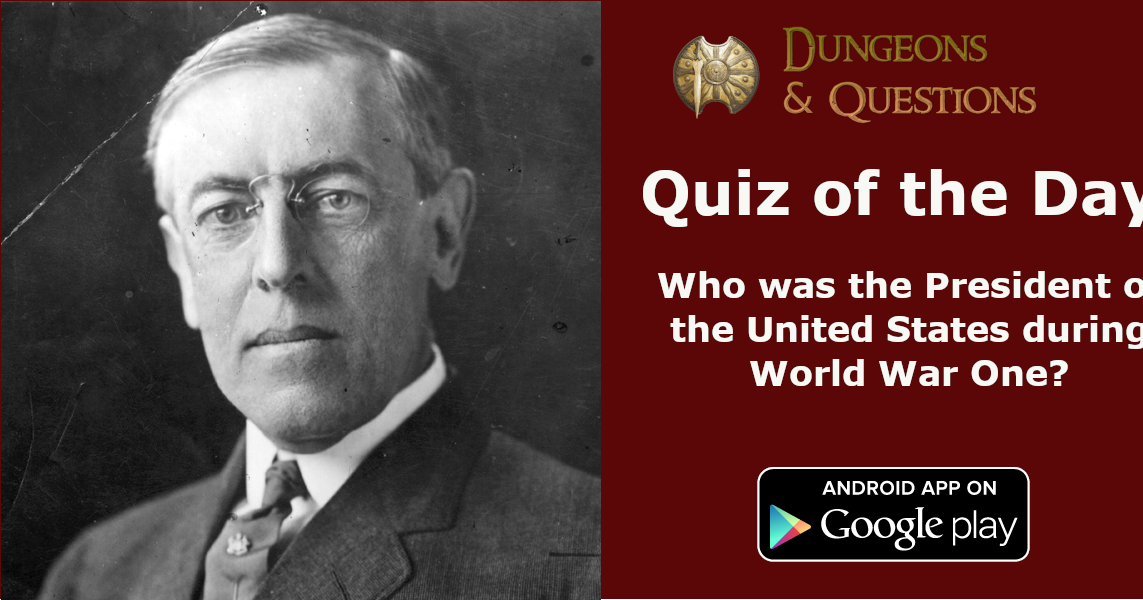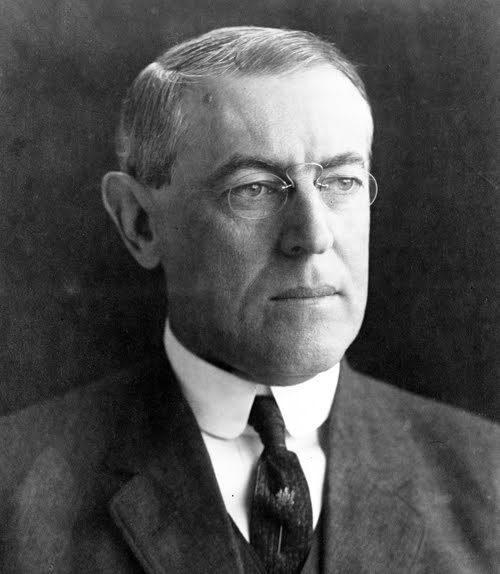The President of the United States during World War I was Woodrow Wilson, a pivotal figure in American history and global politics. His leadership from 1913 to 1921 not only shaped the nation’s involvement in the war but also laid the foundation for modern international relations. This article aims to provide an in-depth exploration of Wilson's presidency, his policies, and the impact of his decisions during this tumultuous time.
Woodrow Wilson, a member of the Democratic Party, was born on December 28, 1856, in Staunton, Virginia. He was a scholar and a politician, serving as the 28th President of the United States. His presidency was marked by significant events, including the First World War, and his vision for a new world order after the conflict. This article will delve into Wilson's biography, key decisions during the war, and the long-term effects of his policies.
As we explore the complexities of Wilson's presidency, we will also look at the socio-political climate of the time, the challenges he faced, and how his ideals of democracy and self-determination influenced the post-war world. Through this comprehensive overview, readers will gain insights into the legacy of Wilson and the role he played during one of the most critical periods in U.S. history.
Table of Contents
- Biography of Woodrow Wilson
- U.S. Involvement in World War I
- Wilson’s War Policies
- The Fourteen Points
- Treaty of Versailles
- Legacy of Woodrow Wilson
- Conclusion
- References
Biography of Woodrow Wilson
Woodrow Wilson was the son of a Presbyterian minister and grew up in a religious and politically active environment. He attended Princeton University, where he earned his doctorate in political science. After a brief academic career, he entered politics, becoming the Governor of New Jersey in 1910.
| Personal Data | Details |
|---|---|
| Name | Woodrow Wilson |
| Birth Date | December 28, 1856 |
| Death Date | February 3, 1924 |
| Presidency | 1913 - 1921 |
U.S. Involvement in World War I
The United States initially maintained a policy of neutrality when World War I broke out in 1914. However, several factors led to its eventual involvement in the conflict in 1917. Key events included unrestricted submarine warfare by Germany, the sinking of the Lusitania, and the interception of the Zimmermann Telegram, which revealed Germany's proposal to Mexico to join the war against the U.S.
Factors Leading to U.S. Involvement
- Unrestricted submarine warfare by Germany
- Economic ties to the Allies
- Political pressure from Britain and France
- The Zimmermann Telegram
Wilson’s War Policies
Once the U.S. entered the war, Wilson implemented several policies to mobilize the nation for war. He established the War Industries Board to coordinate industrial production and the Committee on Public Information to manage public opinion and support for the war effort.
Key Policies Implemented
- Creation of the War Industries Board
- Implementation of the Selective Service Act for conscription
- Promotion of war bonds to finance military efforts
- Establishment of the Food Administration to manage food supplies
The Fourteen Points
In January 1918, Wilson presented his Fourteen Points as a framework for peace. These points emphasized principles such as self-determination, freedom of the seas, and the establishment of a League of Nations to prevent future conflicts. Wilson believed that these ideals would foster a more peaceful and just world.
Treaty of Versailles
After the war ended in November 1918, Wilson played a crucial role in the negotiations for the Treaty of Versailles. The treaty imposed heavy reparations on Germany and redrew European borders. Although Wilson championed the League of Nations, the U.S. Senate ultimately rejected the treaty, marking a significant setback for his internationalist vision.
Legacy of Woodrow Wilson
Woodrow Wilson's presidency is often viewed through the lens of his progressive ideals and his role in shaping modern international relations. While his vision for a League of Nations was not realized during his lifetime, it laid the groundwork for the establishment of the United Nations after World War II. However, his legacy is also marred by his administration's racial segregation policies and opposition to civil rights.
Conclusion
In conclusion, Woodrow Wilson’s presidency during World War I was marked by significant challenges and transformative policies. His commitment to international diplomacy and his vision for a just world order continue to influence global relations today. As we reflect on his legacy, it is essential to engage in discussions about the complexities of leadership during times of crisis. Readers are encouraged to share their thoughts and insights in the comments below or explore related articles for further understanding.
References
- American History: A Survey by Alan Brinkley
- Woodrow Wilson: A Biography by John Milton Cooper Jr.
- The Great War and Modern Memory by Paul Fussell




